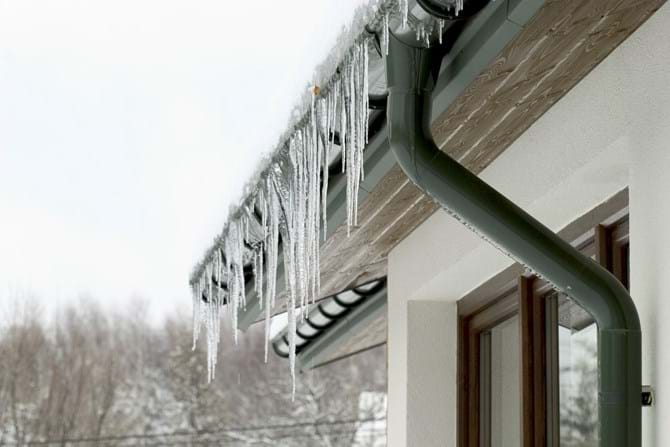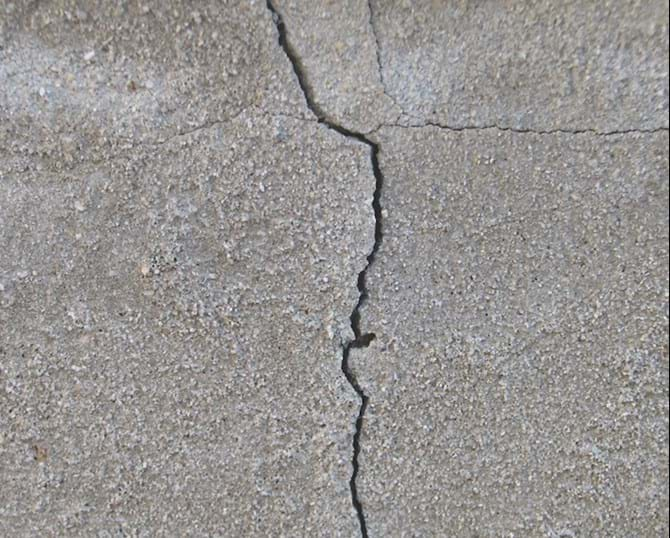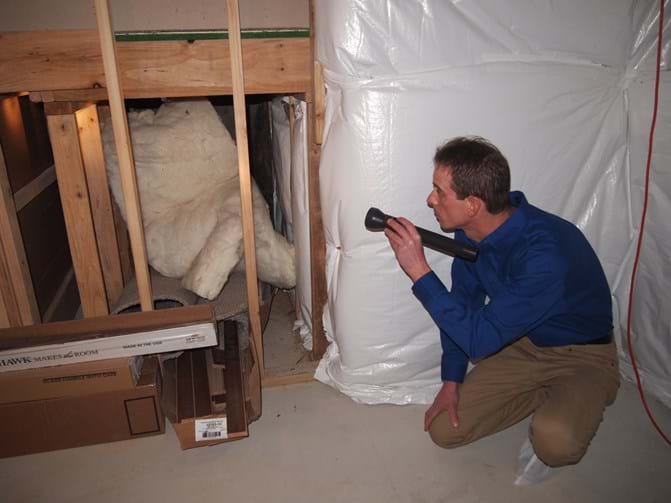Like so many other things in life, winter means different things to different people. I've often noticed that one's opinion of the cold season depends on his or her age. As a child, you might eagerly embrace the winter for its promise of sledding, snowball fights, and unexpected school cancellations. As you grow older, though, your outlook naturally shifts. With luck, you never become blind to what sometimes makes the season seem magical—the feel of fresh snow beneath your boots, for instance, or the sight of sunlight glinting off a low-hanging icicle. But veteran homeowners know too well that along with postcard-worthy scenes, winter brings a host of worrisome hazards. Some are familiar and inescapable, while others are more insidious and, for that reason, can be the most dangerous of all.
Frozen pipes and ice dams, downed trees and power lines—when the sky darkens and the mercury dips, these are the problems that most homeowners dread. The truly wise, however, dread something else too. Like a beacon in the night, a warm home fully stocked with food is an irresistible draw for countless species of insects and rodents. Don't offer them an open invitation! True, mice and rats, cockroaches and spiders are notoriously relentless intruders, often capable of breaching even hairline cracks in the home exterior. But with foresight and care, you can go a long way toward effectively barring unwanted houseguests. It's well worth the effort to do so. Indeed, the "ick" factor may be the least of your concerns. Household pests are capable of causing extensive, expensive damage.

Once they gain entry to your home, insects and rodents gnaw through wood, wires, and drywall, gradually but inevitably leaving no small amount of destruction in their wake. Even their nesting—in dark, warm, often moist crevices—typically results in rotten wood and mold growth, either or both of which undermine the integrity and longevity of your home. There's one silver lining in all this. The measures you need to take to minimize the likelihood of an infestation are the very same measures you should take to maximize the energy efficiency of your home. That is, in one fell swoop, you can pest-proof your home and help lower your monthly utility bills. It all comes down to this: In a tightly sealed, properly protected home, warm air stays indoors while cold air—and pests—stay out.
One caveat is that even if you consider your home to be well defended against both drafts and pests, it may not remain that way throughout the long winter. The whipping winds, freezing rains, and falling snow that characterize winter storms create just the sort of vulnerabilities that pests capitalize on. Extreme weather puts chinks in the armor of your home in the form of the occasional blown-off shingle or a foundation crack caused by freeze-thaw cycles. If not repaired, these weak spots can lead to pest problems.

Though you may not be dealing with an infestation right now, recognize that the risk of a pest invasion never really goes away—especially in winter. So, keep a keen eye out for storm damage as the weeks pass, and sooner rather than later, consider acting on the following best practices for pest prevention:
- Trim back trees to bar rodents from easy access to the underside of your roof overhang.
- Declutter the basement, attic, and any utility rooms so as to eliminate any potential nesting grounds.
- Examine the fascia board along the roofline, replacing any areas of rotted wood.
- Repair loose mortar and replace worn weatherstripping around all windows and doors.
- Store food in sealed containers and keep crumbs off the floor.
- Seal any and all cracks or gaps on the home exterior with a silicone-based caulk.
- Store firewood at least 20 feet from the home, not only off the ground but also covered.
- Avoid ice dams by using a roof rake to dissipate potentially problematic accumulations of snow.
- Hire a professional sweep to clean the stack, inspect the flue, and install a cap over the chimney.
Certain telltale signs suggest the presence of an ongoing infestation—chewed box corners, say, or piles of sawdust where you wouldn't have expected to encounter them. At the same time, however, remember that many people whose homes suffer pest damage don't realize there's a problem until it's too late. If you're concerned about insects or rodents on your property, don't hesitate to call in a professional who is a member of the National Pest Management Association. Trained to pinpoint the obvious and not-so-obvious signs of an infestation, these licensed pest professionals can advise you on how best to ensure the continued protection of your home from its foes.
